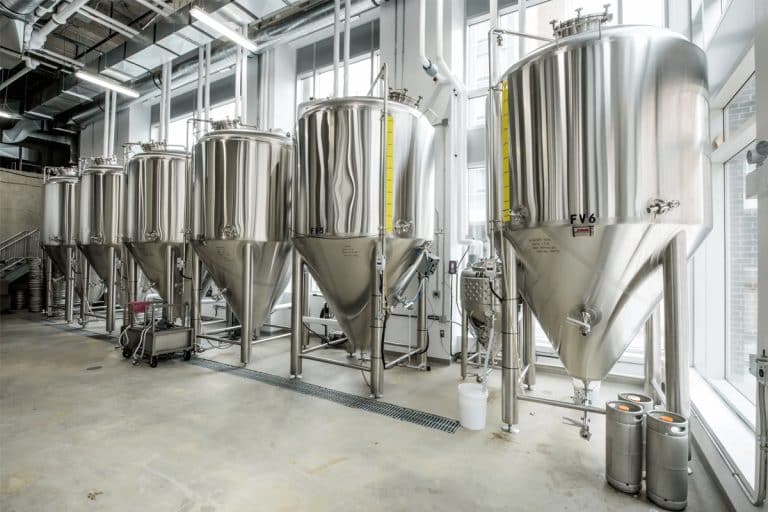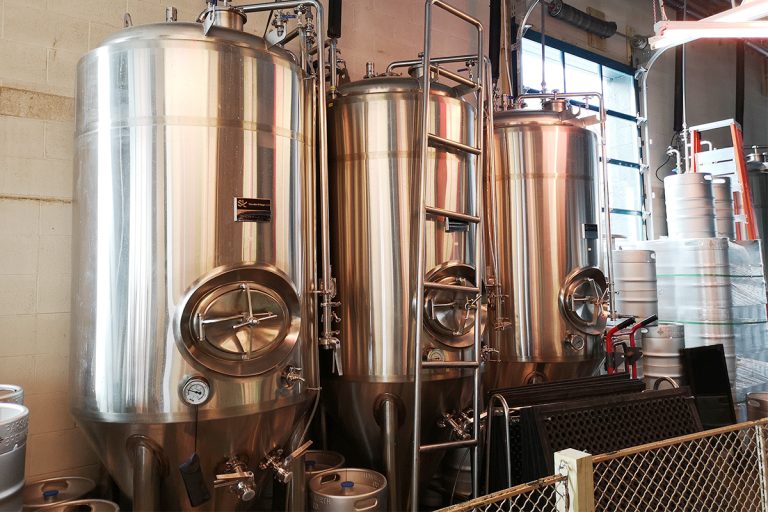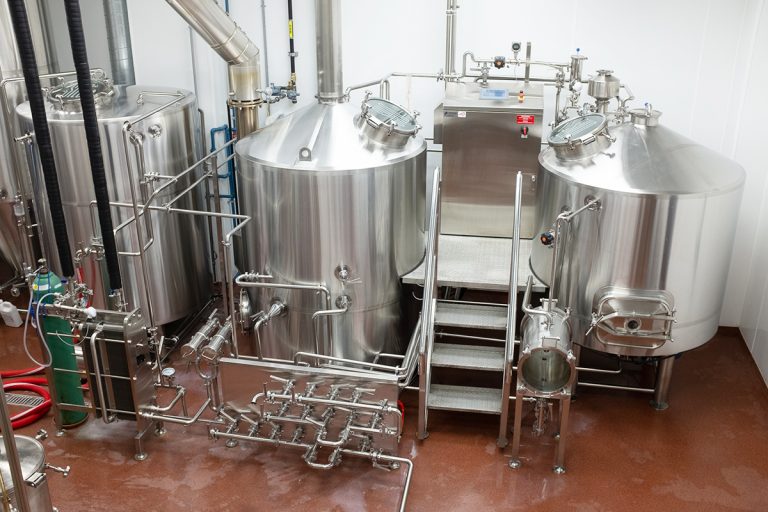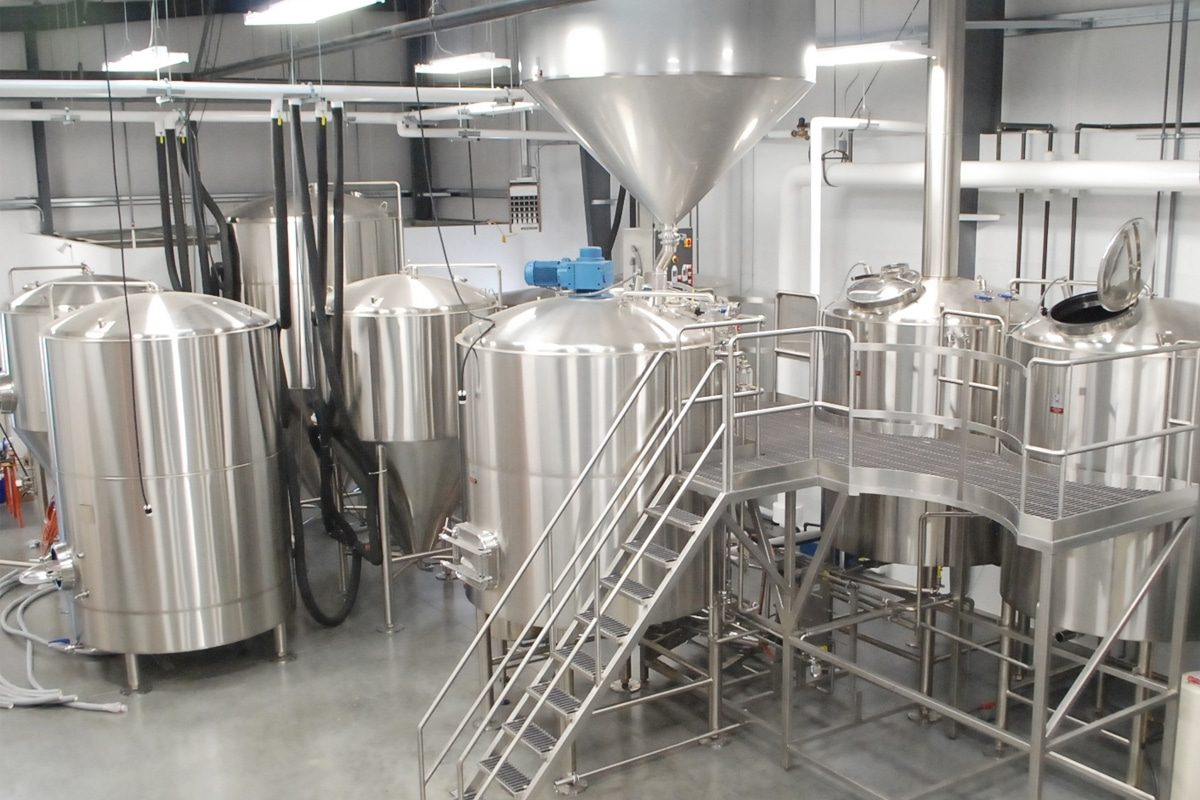
Stainless Steel in Brewing: A Comprehensive Guide
Brewing is an art that dates back centuries and continues to evolve with technology, craftsmanship, and innovation. Today, as brewers strive for precision, consistency, and quality, brewing equipment material selection plays a key role in the process. Among the many options, stainless steel has become the material of choice for brewing vessel manufacturing. In this comprehensive guide, we will explore the properties of stainless steel, the types used in brewing, its applications, the impact of welding, cleaning, and maintenance practices, a comparative analysis with other materials, future trends, and conclude by highlighting the importance of stainless steel in brewing equipment sex.
Comprehensive Guide
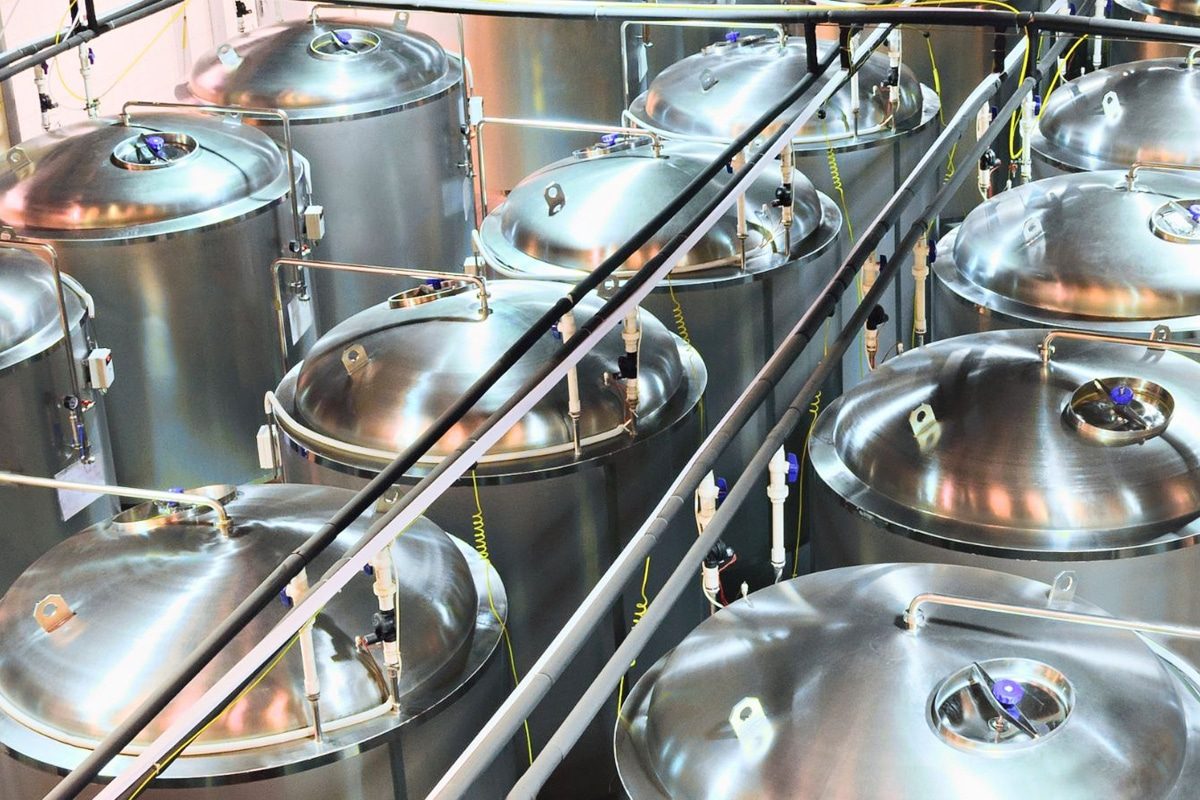
Features of Stainless Steel in Brewing
Stainless steel’s dominance in brewing equipment stems from its unique combination of properties and seamless fit with the demands of the brewing process. Stainless steel offers corrosion resistance, strength, and durability, and its composition often includes iron, chromium, nickel, and molybdenum to prevent rust, stains, and bacterial growth. These qualities are critical to brewing, ensuring hygiene, longevity, and flavor integrity.
Corrosion Resistance
Stainless steel has excellent corrosion resistance due to a chromium oxide passivation film on its surface that protects the steel from corrosive elements. This property is particularly important in the brewing industry, where exposure to liquids and changing temperatures is common. The durability of stainless steel ensures a longer lifespan for your brewing equipment.
Durability
Stainless steel can withstand the rigors of brewing operations, maintaining structural integrity and preventing contamination. Additionally, stainless steel is non-reactive, ensuring it doesn’t impart an undesirable taste or smell to your beer. This inert nature preserves the purity and features of the beer.
Hygienic Properties
Hygiene is crucial during the brewing process, and the non-porous surface of stainless steel inhibits the growth of microorganisms. This feature not only ensures brewing quality but also simplifies cleaning procedures.
Heat Resistance
Heat resistance is crucial in the brewing process, especially during processes like boiling and pasteurization. Stainless steel excels in this regard and can withstand high temperatures without compromising its structural integrity.
High Strength
Stainless steel’s high-strength features allow thin-walled vessels to be constructed without sacrificing structural integrity. Strong stainless steel ensures the structural stability of the tank, preventing deformation or failure that could affect the brewing process or create a safety risk. The greater strength enables the tank to withstand the internal pressure created during the brewing process.
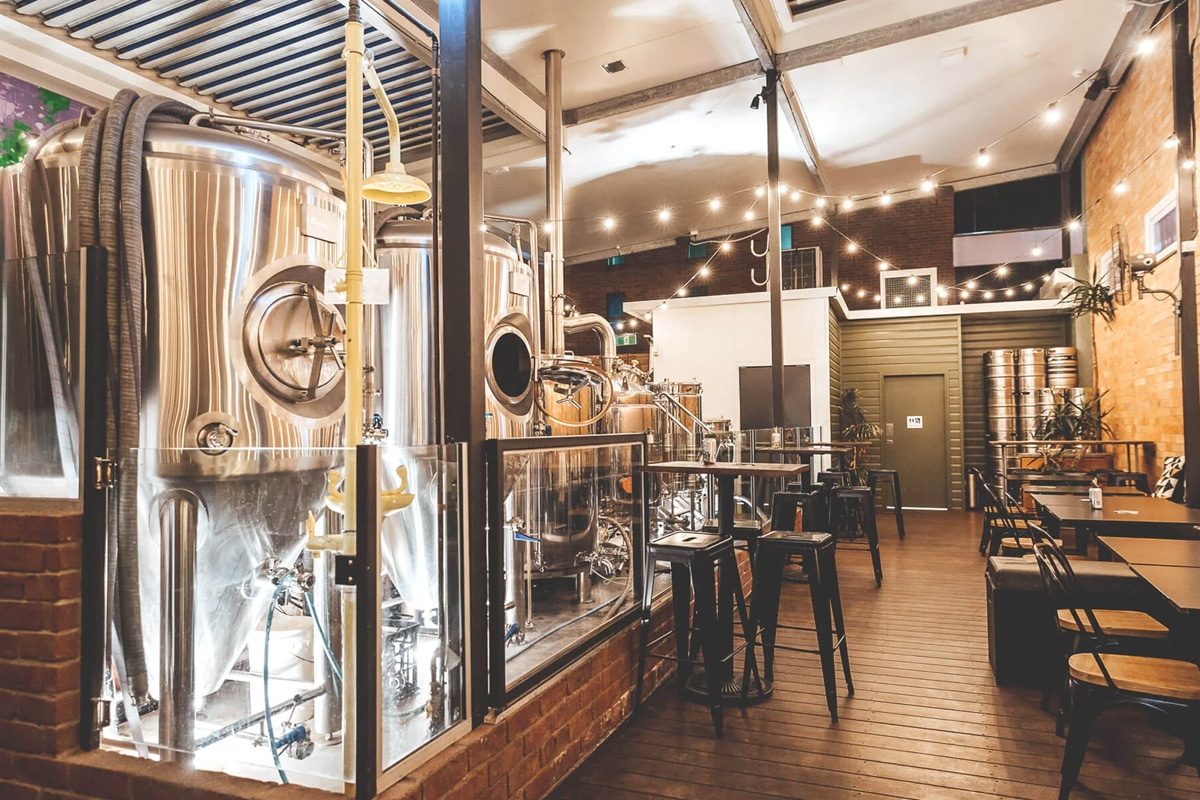
Types of Stainless Steel Used in Brewing
Not all stainless steel is created equal, and brewers must carefully select the appropriate grade based on their specific needs. Commonly used types include 304, 316, and 316L stainless steel. Each material has a unique composition tailored to specific requirements.
- 304 Stainless Steel: Known for its general purpose, 304 stainless steel is corrosion-resistant and suitable for most brewing applications. It contains 18% cadmium and 8% nickel, making it cost-effective and versatile.
- 316 and 316L Stainless Steel: This grade offers improved corrosion resistance. 316 and 316L stainless steel contain 16-18% chromium, 10-14% nickel, and 2% molybdenum, and have excellent resistance to pitting and crevice corrosion. It is generally preferred for use in equipment that is in contact with acidic liquids for extended periods of time, such as fermenters and certain types of heat exchangers.
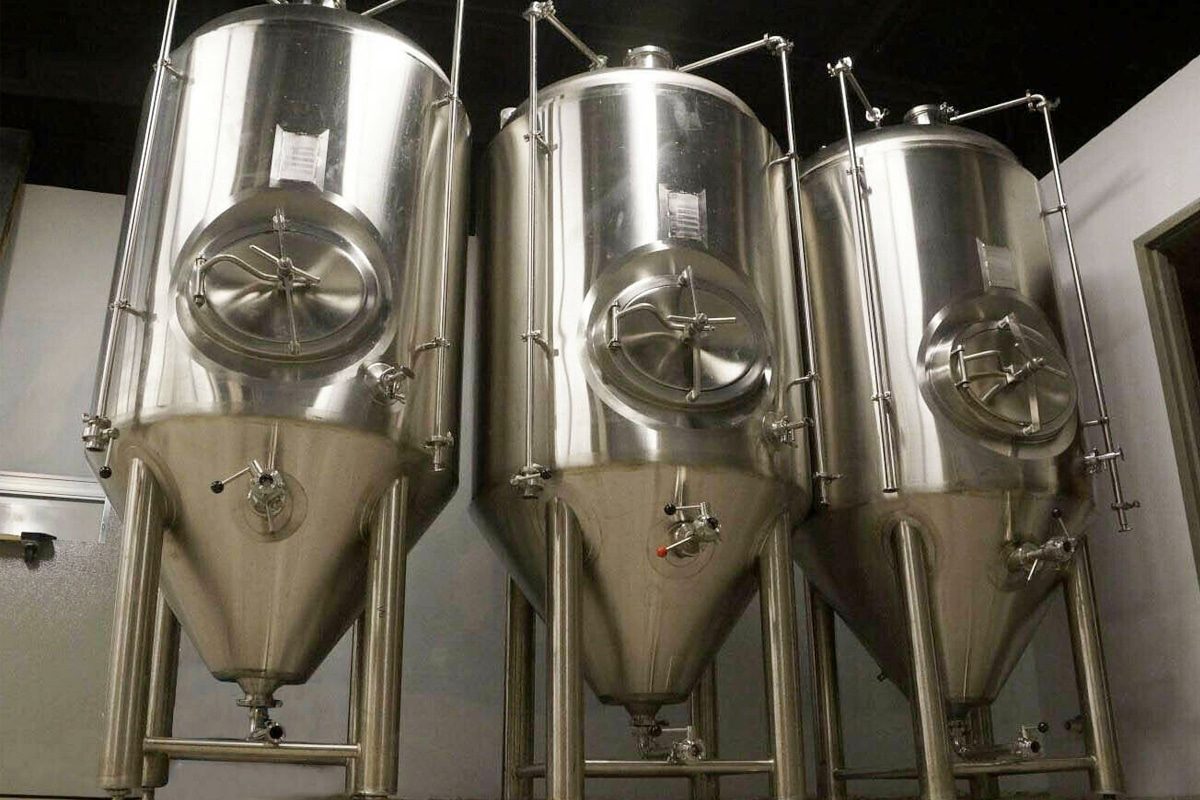
Effects of Welding on Stainless Steel Brewing Equipment
Welding plays a key role in the construction of stainless steel brewing equipment, affecting its structural integrity and the quality of the final brew. If the welding process is performed incorrectly, it can seriously affect the performance, durability, and integrity of your equipment. Let’s explore various aspects of how welding affects stainless steel brewing equipment.
- Welding technology: TIG welding is favored for its precision and control of heat input and is often used in the fabrication of stainless steel brewing equipment. The controlled environment minimizes the risk of oxidation and ensures clean, precise welds.
- Heat control: The high temperatures produced by welding can affect the microstructure of the metal. Improper heat control during welding can cause changes in the properties of stainless steel, potentially reducing its corrosion resistance. When the temperature of stainless steel increases during the welding process, chromium carbide will precipitate at the grain boundaries, which is called sensitization. This compromises corrosion resistance, making the material susceptible to corrosion in certain environments, but post-weld heat treatment can be used to restore the corrosion resistance of critical component materials.
- Structural integrity: The strength and durability of stainless steel brewing equipment depends largely on the quality of the welds. Improperly performed welding can result in weak spots, cracks, or defects in the joint, compromising the structural integrity of the equipment and potentially causing leaks or failures during operation. Proper welding techniques and thorough quality control help ensure the strength of your welds.
- Welding surface passivation: Welding can change the microstructure of stainless steel, potentially affecting its corrosion resistance. Proper passivation (a chemical treatment that restores the corrosion resistance of stainless steel) helps re-establish a protective layer and ensures uniform corrosion resistance throughout the device.
- Post-weld cleaning: Remaining contaminants from the welding process, such as slag or scale, can cause localized corrosion if not adequately removed. To maintain the corrosion resistance of the material, thorough post-weld cleaning and surface treatment are necessary.
- Filler material: Choosing the correct filler material helps maintain the integrity of the stainless steel alloy. Filler materials should be compatible with the base stainless steel alloy to avoid problems such as galvanic corrosion or compromised mechanical properties.
- Avoid contamination: Contamination during the welding process can introduce impurities that affect the flavor and purity of the final beer. Strict adherence to clean welding practices, including the use of uncontaminated filler materials and shielding gases, can help prevent adverse effects on brewing.
- Hygiene and cleanability: Welding can introduce irregularities and roughness to the stainless steel surface, making thorough cleaning more difficult. Smooth, polished welds help maintain sanitary conditions in your brewing equipment, as rough surfaces can harbor bacteria and hinder an effective cleaning regimen.
- Impact on design and efficiency: Good welding creates seamless joints in brewing equipment. This not only enhances the aesthetics of the device but also increases its efficiency. Smooth, well-welded surfaces reduce the risk of bacterial growth and make cleaning and sanitation more effective.
- Maintenance notes: Regular inspection of welded joints can help maintain your brewing equipment. Catch any signs of corrosion, stress, or defects early so they can be repaired or replaced promptly, extending the life of your brewing equipment.
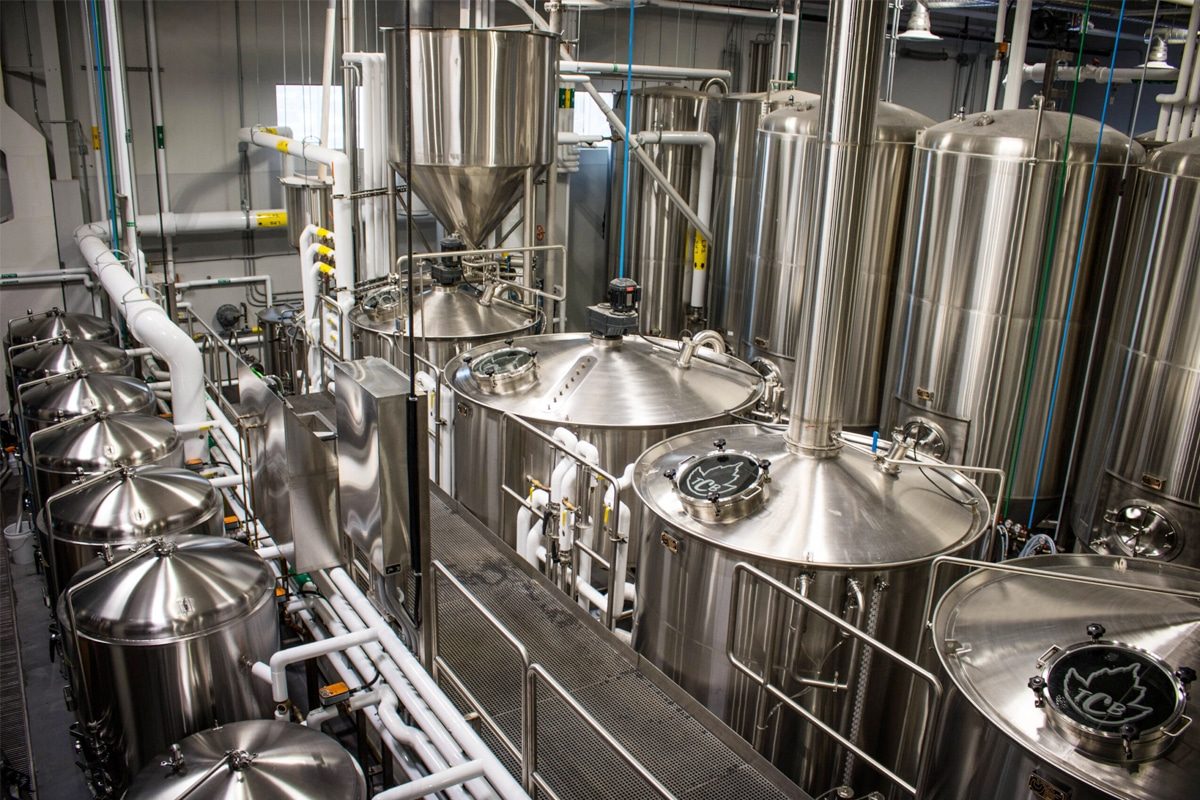
Application of Stainless Steel in Brewing Equipment
Stainless steel finds wide-ranging applications in the brewing industry, from the brewhouse to the fermenting and conditioning vessels. The choice of stainless steel in these key areas contributes significantly to the quality and consistency of the final product.
- Brewhouse equipment: Kettles, mash tuns, and hot liquor tanks benefit from the durability and heat resistance of stainless steel. These vessels endure frequent temperature changes, and stainless steel ensures they withstand the demands of mashing, lautering, boiling, and whirlpooling.
- Fermentation and conditioning vessels: Stainless steel fermentation tanks and conditioning tanks are essential components in modern breweries. Their non-reactive nature prevents off-flavors, while their smooth surfaces aid in the cleaning and sanitation process. Stainless steel’s corrosion resistance is particularly vital in the acidic environment of fermentation.
- Piping and tubing: The use of stainless steel extends beyond vessels to piping and tubing. Stainless steel’s smooth surface reduces the risk of bacterial growth and contamination, ensuring the beer remains pure from the brewhouse to the tap.
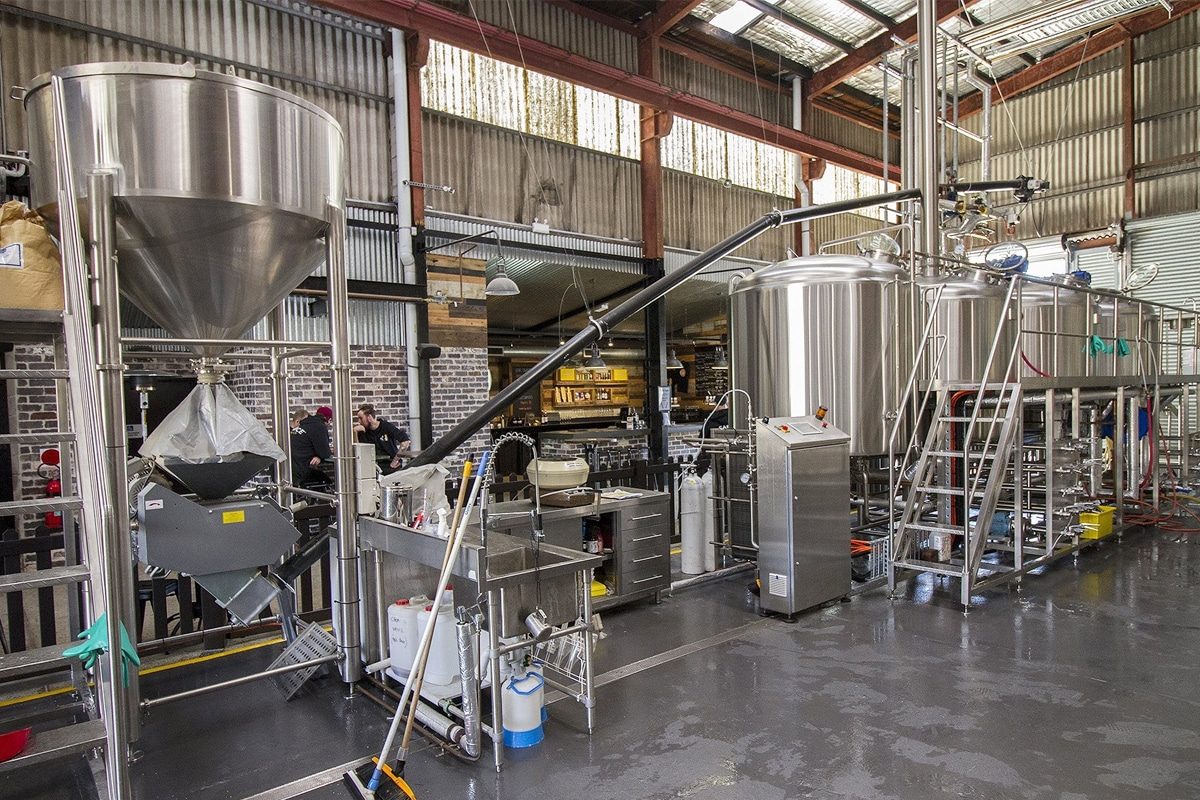
Cleaning And Maintenance of Stainless Steel Brewing Equipment
Keeping your brewing equipment clean and sanitary helps produce high-quality beer. Stainless steel simplifies this process because of its smooth, non-porous surface that resists the adhesion of contaminants.
- Cleaning procedure: Routine cleaning involves the removal of organic and inorganic residues. Mild alkaline cleaners are often used to break down organic deposits, followed by acid-based cleaners to treat mineral deposits. Proper cleaning procedures can prevent the build-up of biofilm and ensure the longevity of your equipment.
- Passivation: Not only is passivation critical after welding, but it is also part of regular maintenance. This process rejuvenates the protective oxide layer and enhances the corrosion resistance of stainless steel.
- Avoid contamination: Brewers must remain vigilant during all stages of brewing to prevent contamination. The inertness of stainless steel goes a long way toward maintaining the purity of your beer.
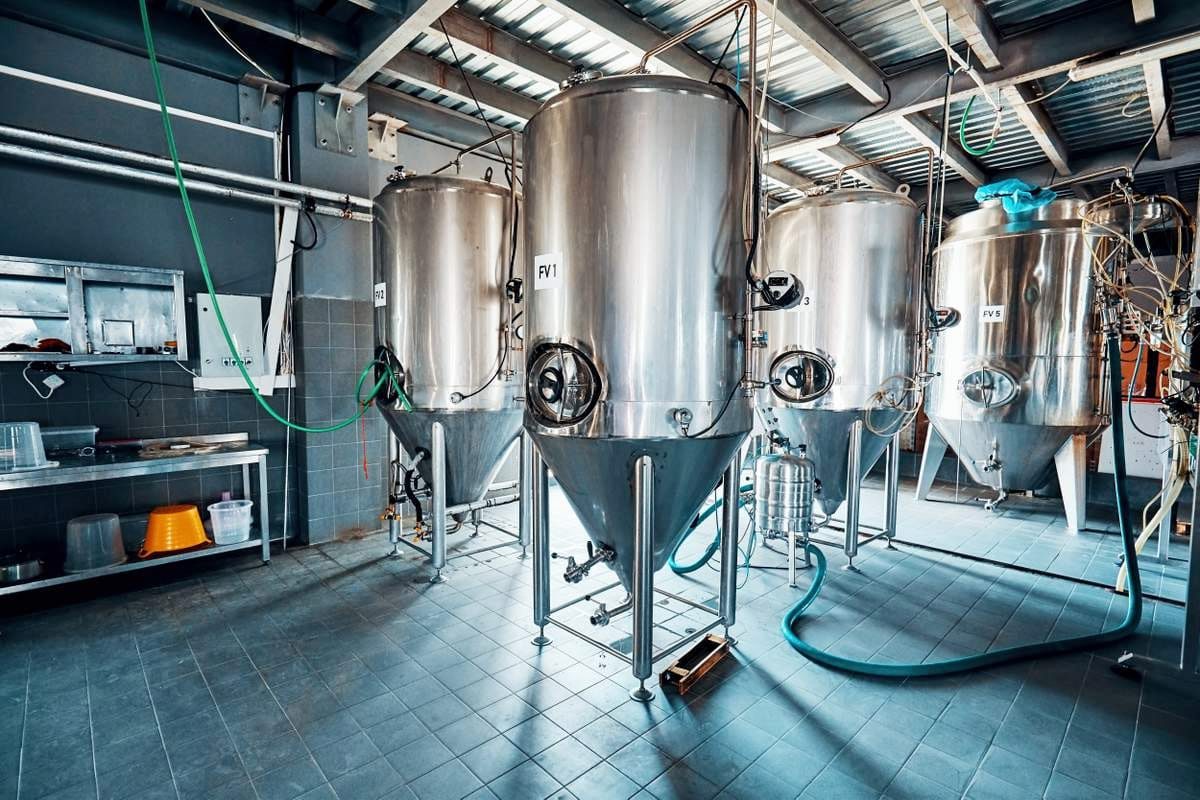
Stainless Steel And Other Materials
Aluminum
- Lightweight: Aluminum is lighter than stainless steel, making it easier to handle, but this may affect durability.
- Corrosion resistance: While aluminum does resist corrosion, it is more susceptible to damage in harsh brewing environments.
Copper
- Thermal conductivity: Copper has excellent thermal conductivity, which is beneficial for certain brewing processes.
- Corrosion issues: Susceptible to corrosion under certain conditions and requires diligent maintenance.
Plastic
- Cost-effectiveness: Plastic is generally cheaper, but its use is limited due to concerns about long-term durability and potential flavor leaching.
- Hygiene challenges: Scratches and surface irregularities in plastic can harbor bacteria.
Stainless Steel
- Robustness: Stainless steel offers excellent sturdiness, and resistance to corrosion and maintains structural integrity over time.
- Flavor purity: Unlike some materials, stainless steel does not impart undesirable flavors to the beer, retaining its original taste.
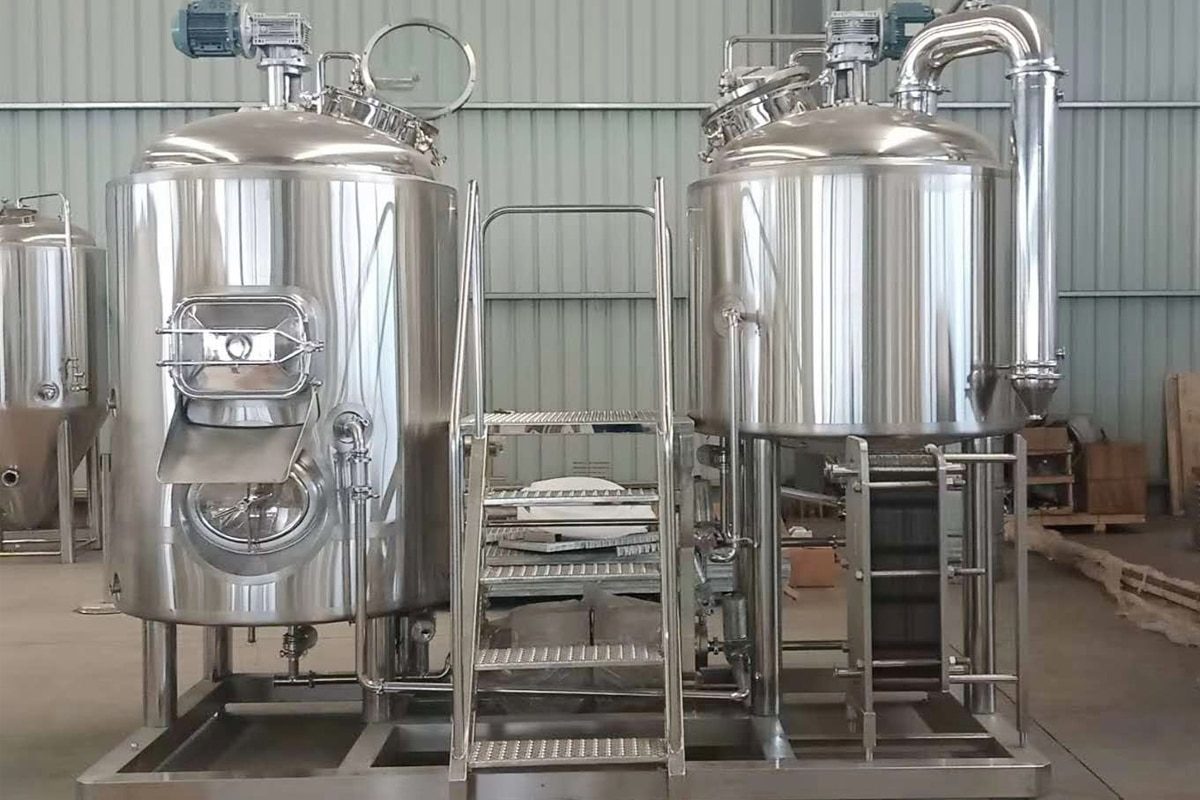
Future Trends in Stainless Steel Brewing Equipment
As brewing technology continues to advance, several trends are shaping the future of stainless steel brewing equipment.
- Smart brewing systems: The integration of sensors and automation in brewing equipment is becoming increasingly common. Stainless steel’s compatibility with these technologies makes it an ideal material for developing smart brewing systems.
- Sustainability: Brewers are increasingly aware of the environmental impact of their operations. Stainless steel’s recyclability and longevity align with the industry’s growing focus on sustainability.
- Innovative design: Advances in manufacturing technology can create complex and efficient designs. The versatility of stainless steel makes it possible to design brewing equipment that maximizes performance and minimizes resource consumption.
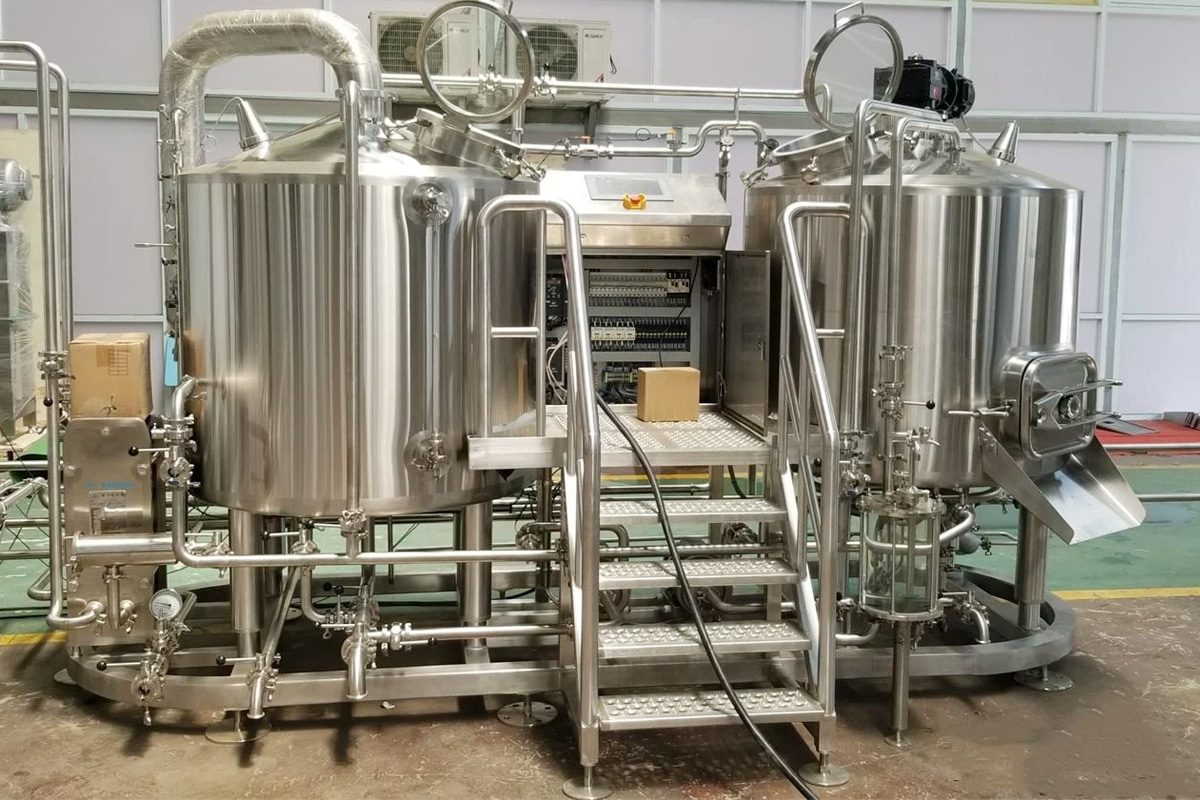
Summarize
Stainless steel is chosen for brewing equipment because of its unparalleled combination of corrosion resistance, durability, and ease of maintenance. For brewers aiming to achieve product consistency and quality, specific types of stainless steel, welding practices, and proper cleaning and maintenance are critical considerations. Although alternative materials exist, stainless steel’s dominance in the brewing industry is unlikely to wane given its adaptability to evolving brewing technologies and the growing emphasis on sustainability. As the brewing industry continues to evolve, stainless steel remains a steadfast companion for brewers committed to brewing quality beer.
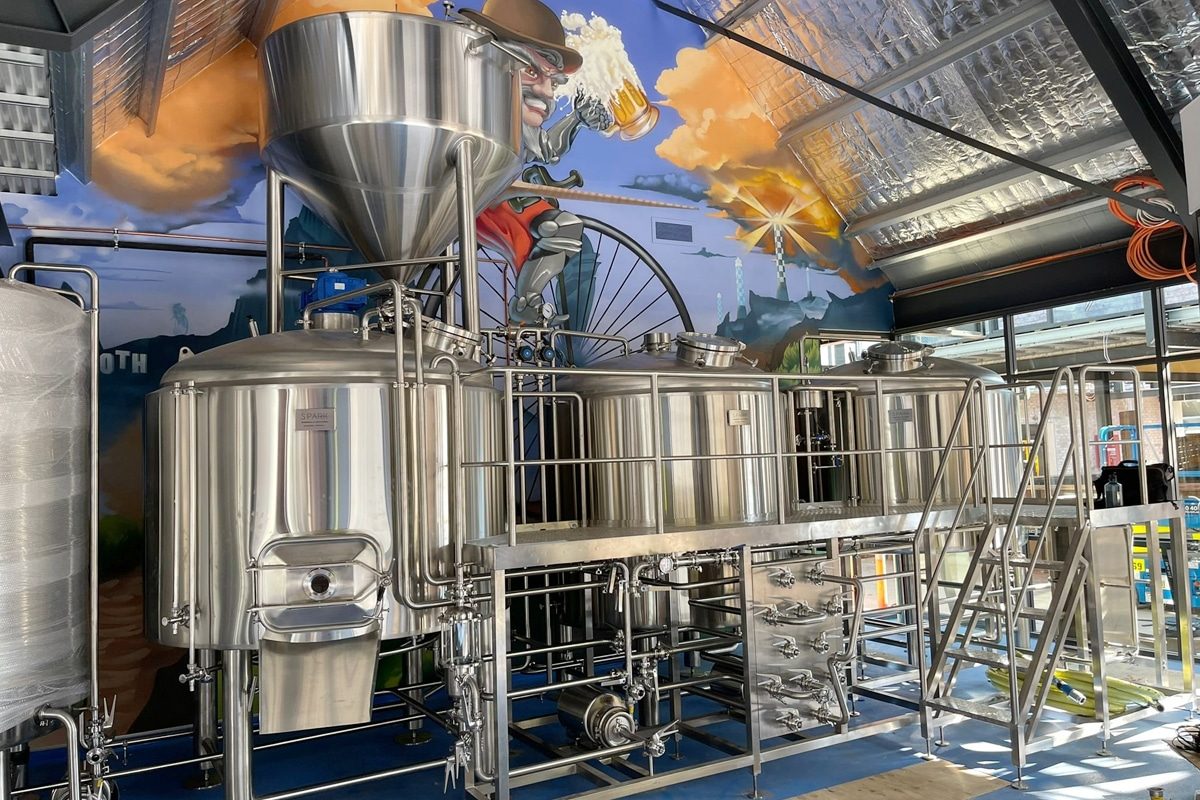
Comprehensive Turnkey Solution
When embarking on the exciting brewing journey, choosing the right stainless steel is a critical decision that can significantly impact the quality and efficiency of your brewing process. At ZYB Craft, we not only offer stainless steel brewing equipment, but we also offer complete brewing solutions. Our experts will guide you through the intricacies of your brewing equipment, ensuring you get the most out of its capabilities to produce consistent, high-quality beer. From the initial consultation to the moment you taste your first batch of beer, our turnkey solutions ensure you have a reliable, efficient, and customized brewing setup. Contact us today and start your brewing journey with confidence and success. Cheers to delicious beer!

